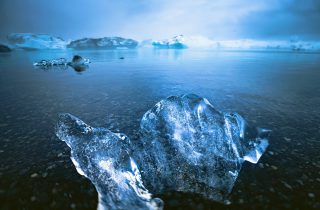EU Parliament Calls on Ban of Drilling, Shipping of Heavy Fuel Oil in the Arctic

The European Parliament has voted today to pass its Resolution on the Arctic, calling on the ban of oil drilling in the Arctic and shipping of heavy fuel oil so as to protect its vulnerable ecosystem and keep it a low-tension and cooperation area.
The parliament called on the Commission and the Member States “ to actively facilitate the ban on the use of heavy fuel oil (HFO) and carriage as ship fuel in vessels navigating the Arctic seas through MARPOL of IMO.”
” Should this not prove feasible at international level, the Commission should come up with rules to prohibit the use and carriage of HFO for vessels calling at EU ports,” MEPs said.
The resolution is a non-legislative document, which together with similar conclusions by the EU Council will guide future EU policy addressing environmental risks in the Arctic.
In addition, the document invites the Commission to include the environmental and climate risks of the use of HFO in its study on the risks that the increase in navigation of the Northern Sea Route would bring and calls on the Commission, in the absence of adequate international measures, to put forward proposals on rules for vessels calling at EU ports subsequent to, or prior to, journeys through Arctic waters, with a view to prohibiting the use and carriage of HFO.
“Climate change is bringing new environmental and security challenges in the Arctic, as the melting ice cap opens up new navigation and fishing routes, and competition for its natural resources heats up,” MEPs added.
Unsustainable use of the area will not only destroy a unique region, but also accelerate climate change and pollute a source of clean water, with catastrophic effects on global fish stocks, co-rapporteur Sirpa Pietikainen (EPP, FI) said.
MEPs pointed out that Arctic has been warming about twice as fast as the global average and that sea ice has been shrinking significantly since 1981, to about 40% less than its summer extent 35 years ago.
Moreover, the MEPs stressed the importance of keeping the region a low-tension area and prevent its militarization, especially in the context of growing presence of Russian forces in the Arctic. By 2015 Russia “had established at least six new bases north of the Arctic Circles, including six deep-water ports and 13 airfields”. They also paid attention to China’s interest in accessing new shipping routes and energy resources.
The resolution was passed by 483 votes to 100, with 37 abstentions.
“Today, the elected representatives of European citizens have delivered a clear message to the International Maritime Organization – it’s time to ban the use of heavy fuel oil from Arctic shipping. By putting a ban in place by 2020, the IMO has an opportunity to reduce both the impact of oil spills and the levels of pollutants which drive the melting of Arctic snow and ice,” Sian Prior, lead advisor to the Clean Arctic Alliance.
According to Faig Abbasov, shipping policy officer at Transport & Environment, the next meeting of the IMO’s environment committee is an important occasion to start formal discussions on addressing the risks related to using heavy fuel oil in the Arctic.
The IMO’s Marine Environment Protection Committee (MEPC) will meet this July 3-7 in London, where it is expected there will be a submission on the risks of using heavy fuel oil in Arctic shipping. The Clean Arctic Alliance called on IMO Member States to support efforts to address such risks, including measures leading to a ban.
HEADLINES
- Do shipping markets want Biden or Trump for the win?
- All 18 crew safe after fire on Japanese-owned tanker off Singapore
- Singapore launching $44m co-investment initiative for maritime tech start-ups
- Cosco debuts Global Shipping Industry Chain Cooperation Initiative
- US warns of more shipping sanctions
- China continues seaport consolidation as Dalian offer goes unconditional